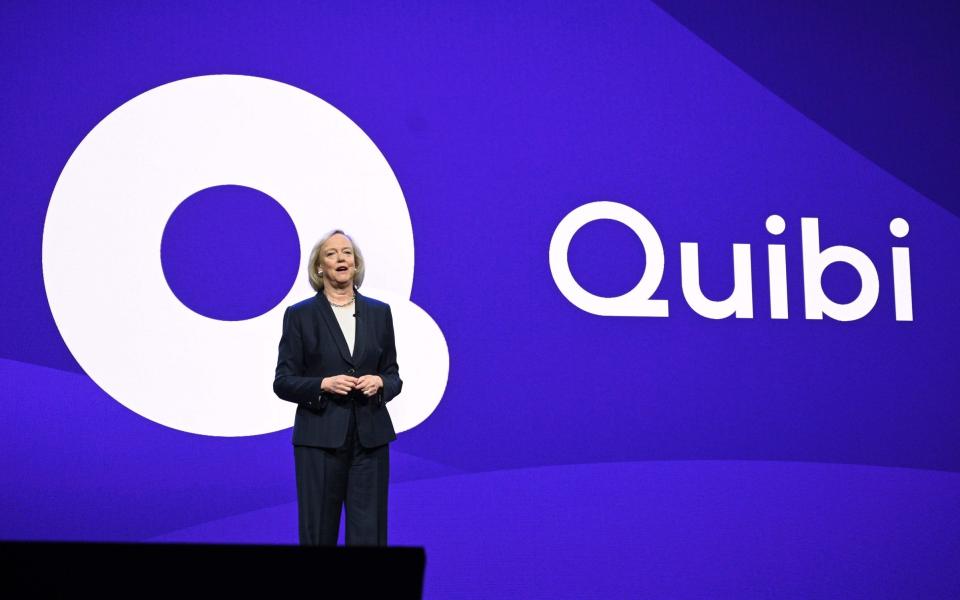Hollywood-backed streaming service Quibi to shut down after just seven months

Quibi, the well-funded short video app that billed itself as Hollywood's answer to TikTok and YouTube, is shutting down just seven months after launching to the public.
The company's chief executive Meg Whitman and founder Jeffrey Katzenberg confirmed on Wednesday that they had "exhausted every option available", with Mr Katzenberg admitting that its business strategy was "no longer viable".
The pair said that they would now wind down Quibi's operations, seek buyers for its assets and return money to its investors within the next few months. Subscribers will be told separately when their service will ens.
Founded in 2018 and trading on Mr Katzenberg's stature as a former boss of Disney and Dreamworks, Quibi's promise to give traditional TV and film studios an edge in the online streaming wars attracted a mammoth $1.75bn (£1.3bn) in funding.
It shelled out for more than 100 bite-size TV serials starring major names such as Laurence Fishburne, Anna Kendrick and Liam Hemsworth, sliced into five to ten minute episodes and specially formatted for smartphones.
Yet after launching this April to a lukewarm reception, the service struggled to lure subscribers away from rivals such as Netflix and Disney+ as the coronavirus pandemic both thinned consumers' wallets and drew them back to larger screens.
By Wednesday, Mr Katzenberg was forced to call Quibi's investors and tell them that the show was over, according to the Wall Street Journal, which first broke the news.
In an open letter, Ms Whitman and Mr Katzenberg gave a "profound apology" for the failure, saying that although Quibi had enough money to continue operating in the short term they wanted to face the music "with grace".
They said: "It is an incredibly heavy heart that today we are announcing that we are winding down the business and looking to sell its content and technology assets.
"The circumstances of launching during a pandemic [are] something we could have never imagined, but other businesses have faced these unprecedented challenges and have found their way through it. We were not able to do so.
"As entrepreneurs our instinct is to always pivot, to leave no stone unturned — especially when there is some cash runway left — but we feel that we’ve exhausted all our options."
The Wall Street Journal reported that Quibi had brought in a restructuring firm and sought a buyer for its whole business, but had struggled because it did not own most of its shows.
When first announcing the company, Mr Katzenberg promised to build an "absolutely perfect" service that would be a "step up in quality" from YouTube. Its gamble was that videos formatted to work in both portrait and landscape mode for easier viewing on smartphones would be the format of the future.
Quibi's launch to consumers on April 6 was underwhelming, with 300,000 people downloading it in the US and Canada during its first day compared to 5m joining Disney's rival streaming service in the UK and parts of Europe.
By July, the service had reportedly lost 92pc of its initial users after the expiry of its free three-month trial, in part because coronavirus lockdowns had driven consumers en masse back to larger screens.

 Yahoo News
Yahoo News 